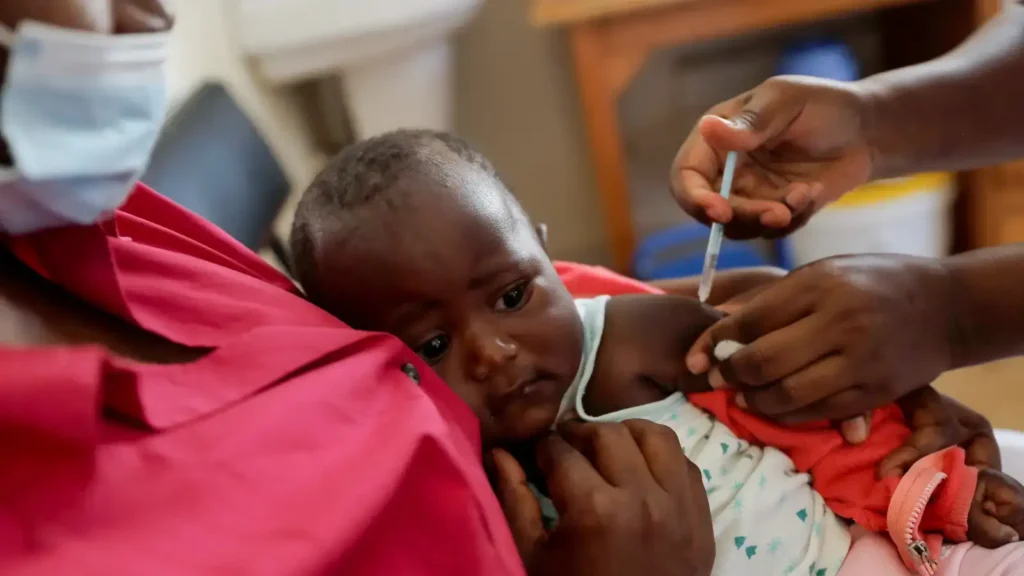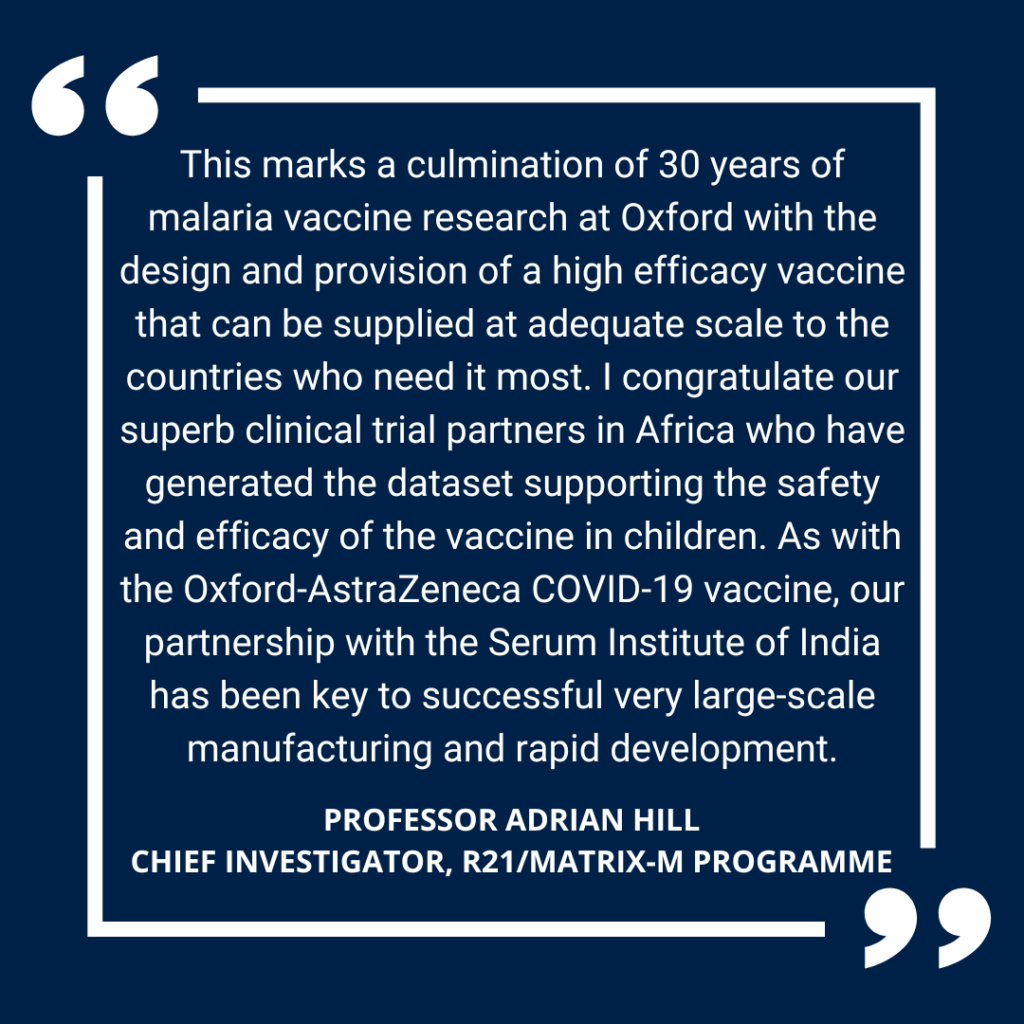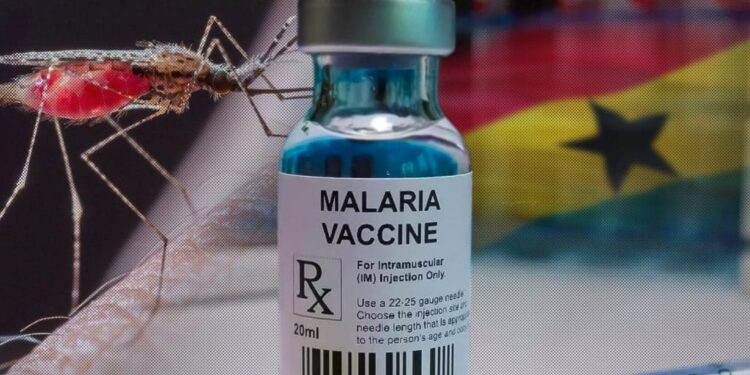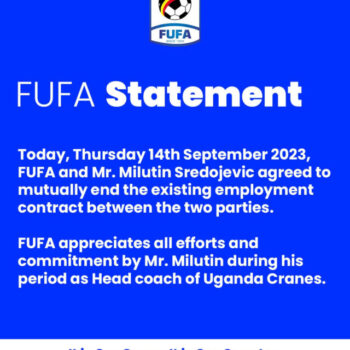The world has been eagerly awaiting the development of an effective malaria vaccine, and now Ghana has become the first country to approve Oxford’s R21 vaccine for children, which has an efficacy rate of 77 percent.
CUPERTINO, CALIFORNIA | NOW THEN DIGITAL — Ghana has granted approval for the use of the world’s second malaria vaccine, a development that has been touted as a major breakthrough in the battle against the parasitic disease.
The vaccine, known as R21/Matrix-M, was created by the esteemed University of Oxford and produced by the Serum Institute of India Pvt Ltd (SIIPL).
The scientists behind this innovative vaccine claim that it has the potential to significantly reduce the number of malaria-related deaths, estimated to be over half a million per year, and improve health outcomes for millions of people, particularly in Africa where malaria is transmitted by mosquitoes.
The World Health Organization (WHO) reports that Africa bears the greatest burden of disease in terms of both morbidity and mortality.

A Potential Game-Changer
The R21 vaccine, considered by some scientists as a potential “game-changer,” is designed to prevent disease and death rather than transmission. The existing Mosquirix vaccine has an efficacy rate of only 30 to 60 percent. Late-stage testing is still ongoing in several African countries, including Burkina Faso, Kenya, Mali, and Tanzania.
While it is unusual for a vaccine to be approved before clinical trials are completed, Ghana has given the green light for children aged five months to three years, who have the highest risk of death from the disease.
Rollout Delayed Until WHO Approval
Despite Ghana’s approval, rollout of the R21 vaccine will be delayed until it is approved by the World Health Organization (WHO). Once approved, Ghana’s drug regulator has a deal with the Serum Institute of India to produce up to 200 million doses per year at a cost of a couple of dollars per dose.
A 30-Year Journey

Oxford researchers have been working on the R21 vaccine for 30 years, and their efforts have now culminated in the provision of a high-efficacy vaccine that can be supplied at an adequate scale to the countries most in need.
Once it is approved, the R21 vaccine is expected to be a powerful weapon in the fight against malaria.
In a statement, Professor Adrian Hill, director of the Jenner Institute at Oxford, said the R21 vaccine is the culmination of three decades of malaria vaccine research at Oxford. The new vaccine has been designed to provide protection against the malaria parasite by targeting the proteins that the parasite uses to infect the liver.
The Barriers to Development
Developing a malaria vaccine is not without its challenges, with funding and commercial potential being two of the most significant barriers. Malaria is most prevalent in sub-Saharan Africa, where low-income countries have limited resources for research funding and vaccine development.
However, with the development of the R21 vaccine, there is hope that the vaccine will help to combat the disease and support global efforts to save lives.
According to Adar Poonawalla, CEO of the Serum Institute of India:
“Malaria is a life-threatening disease that disproportionately affects the most vulnerable populations in our society and remains a leading cause of death in childhood.
Poonawalla also expressed his commitment to scaling up production of the vaccine to meet the needs of countries with high malaria burden and to support global efforts to save lives.
Malaria, the Parasitic Disease
Malaria is a parasitic disease that is transmitted by mosquitoes and is most commonly seen in tropical and subtropical climates. It is preventable and curable, but its symptoms range from mild to life-threatening.
Children, pregnant women, and immunocompromised individuals are most at risk, with the most common species in sub-Saharan Africa, Plasmodium falciparum, being the most deadly.
The Need for a Global Response
The release of the R21 vaccine is a significant milestone in the fight against malaria, but it is only the beginning. Eradicating the disease globally will require a coordinated global response and a significant investment in research and development.
Nevertheless, the approval of the R21 vaccine by Ghana is a crucial step forward in the battle against malaria, and it provides hope that a brighter future is on the horizon for millions of people who are affected by this deadly disease.
Editor’s Note: Our content may be inaccurate or out-of-date, so please contact us at press@nowthendigital.com if you see something that needs to be updated.

















